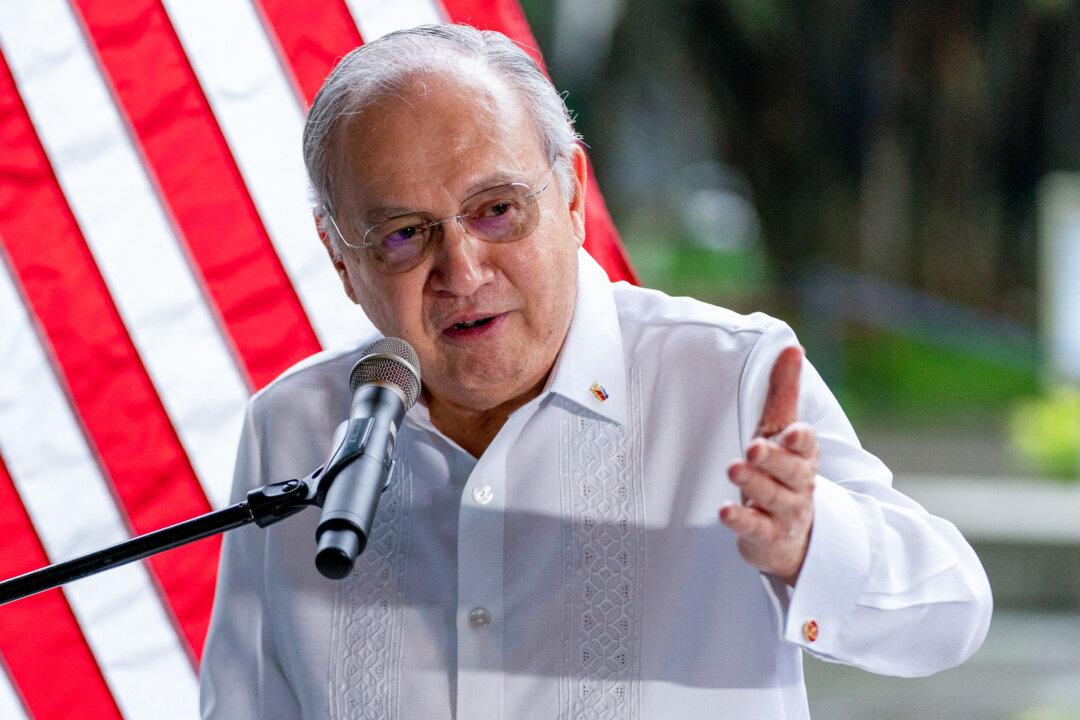The Philippines is planning a summit of at least 20 nations on the sidelines of the U.N. General Assembly in the coming weeks to find ways “to talk some sense” into the Chinese regime over its aggression against Manila in the South China Sea.
Jose Manuel Romualdez, the Philippines’ ambassador to the United States, revealed the plan on Sept. 10 at the Future Security Forum 2024 in Washington, an annual event organized by Arizona State University and think tank New America.





